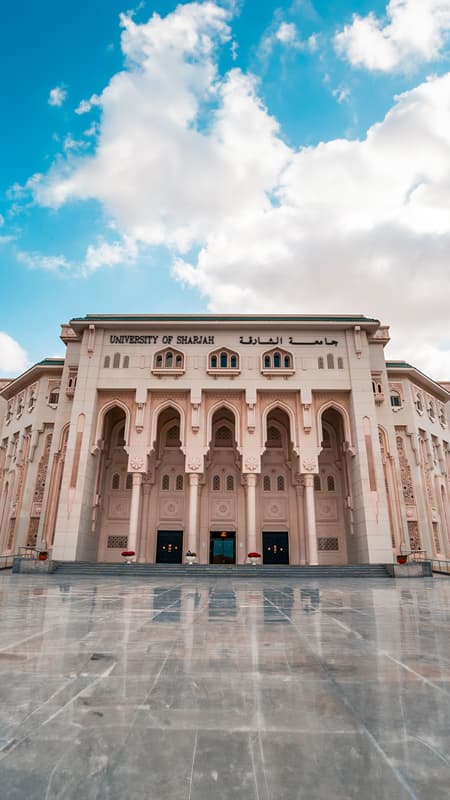In a New International Achievement for the Emirate of Sharjah: The International Astronomical Union Adds the Sharjah Astronomical Observatory on the Global Observatories Map
Thanks to the continuous unlimited support of His Highness Sheikh Dr. Sultan bin Muhammad Al Qasimi, Supreme Council Member and Ruler of Sharjah and President of the University of Sharjah, and within the framework of its unwavering progress in the global scientific fields. The Sharjah Astronomical Observatory of the Sharjah Academy for Astronomy, Space Sciences, and Technology (SAASST) at the University of Sharjah records a new global achievement. The Minor Planet Center (MPC) of the International Astornomical Union (IAU) added the Observatory to its list of credible and reliable international observatories list with the code: Sharjah Observatory M47.
His Highness the Ruler of Sharjah established SAASST as a scientific edifice that aims to enrich awareness and public knowledge of the developments, importance, and impact of astronomy, space sciences, and technology. Also to become a world leader in scientific research and solidifying the UAE's position as a scientific center at the regional and global levels.
The Minor Planet Center of the IAU announced this yesterday, and the Sharjah Astronomical Observatory will monitor, track and discover asteroids and send scientific reports on the movement of these asteroids through continuous observation and analysis.
Commenting on the importance of this news, His Excellency Prof. Hamid M.K. Al Naimiy, Chancellor of the University of Sharjah, General Director of SAASST, and President of the Arab Union for Astronomy and Space Sciences, said that this global achievement will enable the Sharjah Astronomical Observatory to send official asteroid observation reports after analyzing them with special software and high accuracy.
He added the a team at the Sharjah Astronomical Observatory recently observed seven asteroids of low light magnitudes following several nights of observation, analyzed their movement in the sky, and sent the final report to the MPC. Upon their review of this report, the MPC approved the Sharjah Astronomical Observatory and added it to the list of reliable global observatories.
His Excellency the University Chancellor affirmed that SAASST, thanks to the generous and continuous support of His Highness Sheikh the Ruler of Sharjah, and through this great achievement confirms its ability of achieving its scientific mission. He pointed out that SAASST is advancing with steady steps in enriching awareness and knowledge in the fields of astronomy, space sciences, and technology through scientific and research projects. This achievement will enable the Sharjah Astronomical Observatory to participate with its observations and official reports on asteroids or small bodies that cross close to Earth at the global level through the Minor Planet Center of the IAU. This aiming to contribute to determining their orbits and recalculating it accurately. SAASST and the University of Sharjah will also dive into scientific research on asteroid orbits. The Sharjah Astronomical Observatory publications with MPC will feature its logo and code: Sharjah Observatory M47.
It is noteworthy that the Sharjah Astronomical Observatory plays an active role in disseminating scientific information. It also plays a significant role in supporting research projects studying galaxies and binary stars, variable stars, and determining the age of constellations. Astronomy and space enthusiasts also frequently visit the observatory to learn more about the field during the Observatory's various events. It is equipped with the best and latest devices and lenses that enable astronomical imaging and deep observation of the sky. It contains two reflector lenses that enable observing the planets and solar observations, and monitors asteroids, the sun, eclipses, and the exoplanets daily.
In the service of scientific and research fields, the University of Sharjah in cooperation with SAASST launched several new graduate programs. Those include the Master of Science in Space Sciences and Astronomy, the Master of Science in Geographic Information System and Remote Sensing, and the Master in Air and Space Law programs. They aim to enhance the academic and professional knowledge of students and provide them with the required experience in the field of astronomy and space sciences. This through working on specialized research and developing projects that support the space sector in the United Arab Emirates and the world.



